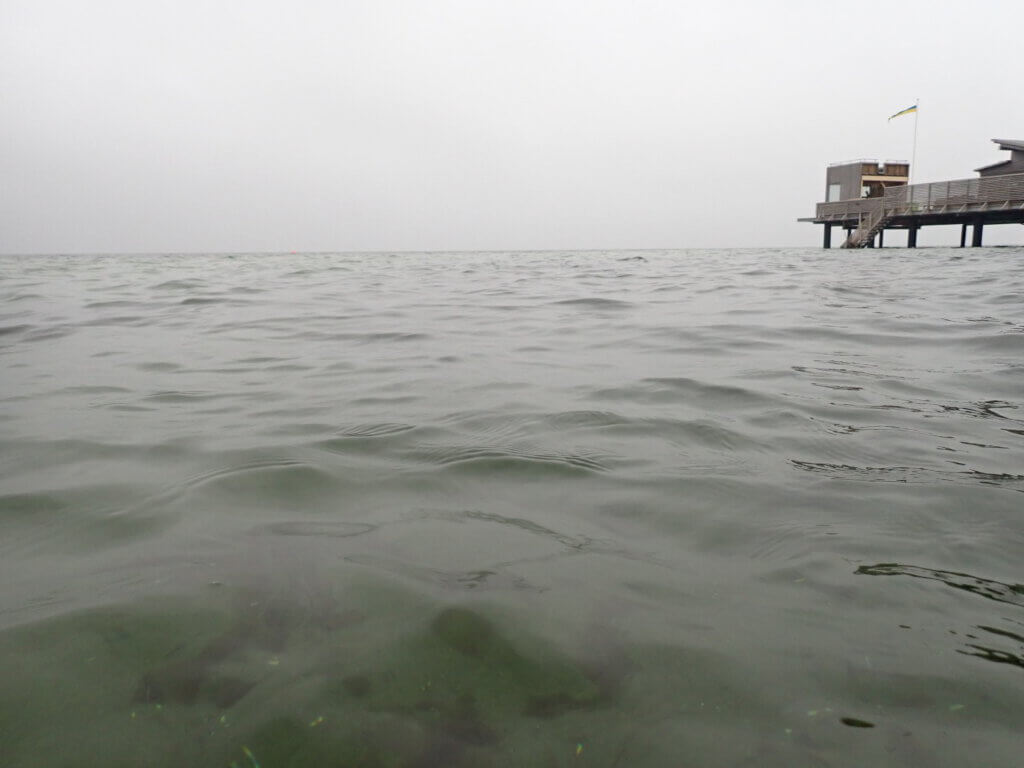
Currently reading Cech (2014) “Culture of disengagement in engineering education?”
I’m thinking quite a lot about responsibility — of students for their learning, for example in the context of active learning and co-creation, of teachers for what they are teaching — but I actually have a long history with thinking about teaching for responsibility in a different context. My first ever publication on teaching and learning was on “A case study of teaching social responsibility to doctoral students in the climate sciences” (Børsen et al., 2013). So when I started reading Cech (2014) on “Culture of disengagement in engineering education?”, I felt compelled to first revisit what I had actually written on a related topic myself… (But jump down to a summary of Cech (2014) if that is what you came here for!)
In a nutshell, in Børsen et al. (2013) we describe a course for PhD students in climate sciences that I, as a PhD student in climate sciences at the time, was involved in developing and evaluating. The course had three main goals: Sensitisation (i.e. creating awareness of ethical dilemmas that scientists might encounter), information (about dilemmas but also analytical tools to assess and evaluate them, and how to formalise an argument), and empowerment (being able to actually work with ethical dilemmas and act appropriately). And we thought we did that quite well, even though I had forgotten all about it until I re-read the article…
From that article, I found a summary article by Børsen et al. (2021) on “Initiatives, experiences and best practices for teaching social and ecological responsibility in ethics education for science and engineering students”, where they share the following recommendations:
- Be close to real life. Involve students in learning ethics
- Use active pedagogy. Project work makes students build resources, lead group work and make collective decisions.
- Embed social responsibility courses into the curricula. Do not isolate ethics.
- Link ethics teaching to both critical thinking and scientific methods as well as to contextual elements.
- Establish links with external partners and ask for their support to promote socio-ecological responsibility teaching
- Promote different perspectives. Teach to collect and take into account different points of views.
Now on to Cech (2014) and the question of a “Culture of disengagement in engineering education?”
Cech (2014) starts out with mentioning how engineering has a long tradition of “acknowledg[ing] its responsibility to monitor the practices of its members“, in codes of ethics etc.. Here in Sweden, we do have the hederskodex by Sveriges Ingenjörer that starts out by stressing the responsibility that engineers hold in society. Engineering students are socialised into a profession, but does that actually include socialising them into those same values that are defined in all the different codes of ethics? This is of course very important to know, since “the way engineering students understand their responsibilities to the public likely informs their future epistemological approaches to and day-to-day production of technoscience—what puzzles they consider important, which solutions they consider desirable, and the methods with which they design and test their innovations“. And, of course, “the disengagement of engineers and other powerful professionals from public welfare considerations may perpetuate unequal structures and practices for disadvantaged groups within that public“, because “If engineers cannot adequately reflect upon the social impact of their work, there are few individuals in the lay public with the specialized competencies to do so“.
But then who gets to shape who feels responsible for what? A lot is probably done within the practice itself, and “disengagement may mean that things like public welfare considerations get defined out of engineering problems, excluded from the realm of responsibility that engineers carve out for themselves“. But of course education plays a big role, too, but often just perpetuates what is present in the practice: “engineering education fosters a culture of disengagement that defines public welfare concerns as tangential to what it means to practice engineering. This culture has three ideological pillars: the ideology of depoliticization, which frames any ‘‘non-technical’’ concerns such as public welfare as irrelevant to ‘‘real’’ engineering work; the technical/social dualism, which devalues ‘‘social’’ competencies such as those related to public welfare; and the meritocratic ideology, which frames existing social structures as fair and just“. These pillars act together so that “proactive contemplation of the broader social impacts of technology is often explicitly excluded from the purview of engineers’ day-to-day design activities“.
Some engineering schools make efforts to counter that, but more than tag-on lectures by external experts are needed: “Even if programs introduce social justice lectures or modules directly into engineering classrooms, the subtle messages students often receive about the relevance and value of those considerations mean that students may be unlikely to develop critical reflexivity about public welfare issues“.
Cech (2014) looks at receiving end rather than the sending one; “Even if faculty and staff believe they are succeeding at socializing students to understand public welfare responsibilities, students may not be receiving those messages“. Cech (2014) therefore follows the “public welfare beliefs” (on their professional/ethical responsibility; importance to understand the consequences of technology; importance to undestand how people use machines; and social consciousness) of 326 engineering students from a broad range of US engineering schools, from their first year at university until graduation and in some cases even into work life. In a nutshell: “students [,,,] do appear to encounter a culture of disengagement in their engineering programs, and, partly as a result, leave engineering education less committed to engaging with the public welfare considerations of their work than when they entered“. So what that means is that students are trained to be less interested in public welfare than they were when they entered university!
The article is based on a US context, and as we learnt from Torgny not so long ago, context is very important and therefore not everything is transferable to everywhere else. Cech (2014) however finds that there isn’t a big difference between schools in the US, so how likely is it that things are very different here, especially seeing that the three pillars sound eerily familiar?
Cech (2014) concludes: “My results illustrate that the cultural emphases within engineering programs influence how students in these programs come to understand their future roles as professionals. Optimistically, my findings do suggest that if engineering programs can overcome forces of isomorphism and challenge the ideological pillars of disengagement, it appears that engineering programs could produce a new brand of engineer, one that thinks critically about the coconstruction of public welfare and the technological systems on which he or she works.”
Børsen, T., Antia, A. N., & Glessmer, M. S. (2013). A case study of teaching social responsibility to doctoral students in the climate sciences. Science and Engineering Ethics, 19, 1491-1504.
Børsen, T., Serreau, Y., Reifschneider, K., Baier, A., Pinkelman, R., Smetanina, T., & Zandvoort, H. (2021). Initiatives, experiences and best practices for teaching social and ecological responsibility in ethics education for science and engineering students. European Journal of Engineering Education, 46(2), 186-209.
Cech, E. A. (2014). Culture of disengagement in engineering education?. Science, Technology, & Human Values, 39(1), 42-72.
Foggy morning (on Good Friday — I am a bit behind with posting pics!), but everything was finally starting to get green!

And starting to bloom!

And yet, cold dips are still cold. Exactly how they are supposed to be!
